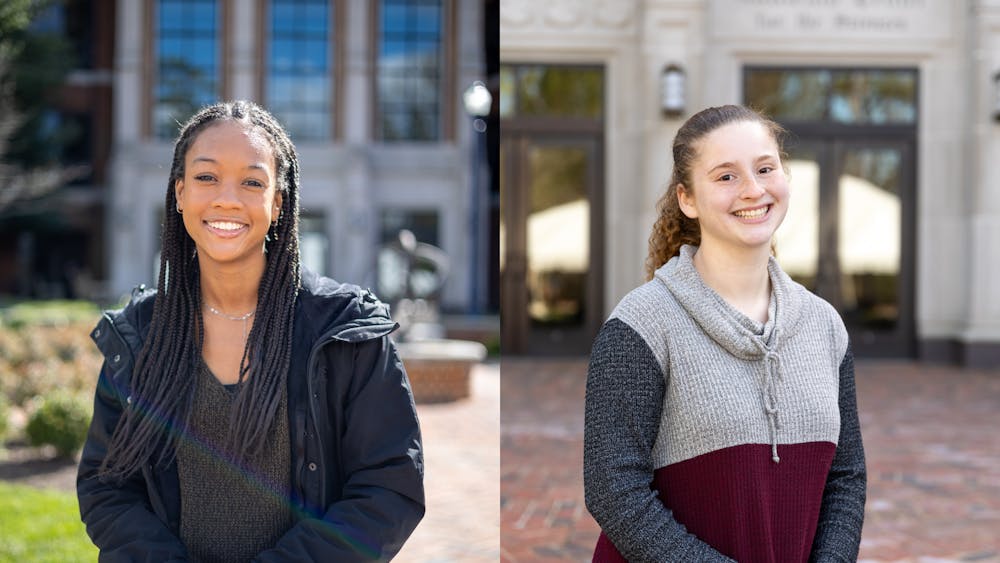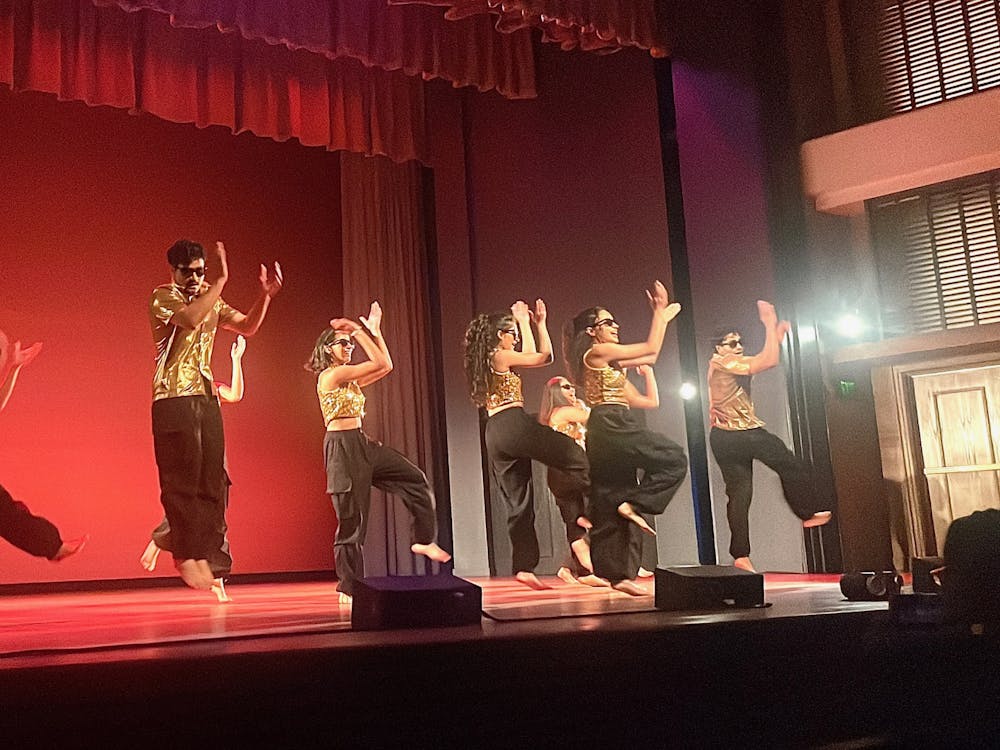The University of Richmond's new social justice publication Counterculture Magazine launched its first edition Friday.
The magazine will feature articles focusing on a broad range of social justice issues rather than having one central focus or theme, said first-year Christian Herald, founder and editor-in-chief. Previews of the content that will be featured in Counterculture’s first edition have been posted to its Instagram, with content referencing critical race theory and prison abolition.
Throughout her first month at UR, Herald both heard about and witnessed many instances of social injustice that showed her the necessity of a platform for students to write about the issues that matter to them, Herald said.
“Literally, every single day, people tell me stories about things that happen to them on campus, whether it's sexual assault, harassment, racism, homophobia and I see injustice on campus in terms of treatment of workers, ” Herald said. “This would happen, and I’d be like, 'Why is there no discussion about this? Why is no one writing about this?'”
Herald brought these questions and frustrations to her leadership professor Thad Williamson, who suggested that she write about the issues that mattered most to her. After brainstorming the ways in which she could do that, Herald decided to create a magazine, she said.
“And then, I just became so inspired,” Herald said. “I was like, 'What if there was a place in which they could write about the issues that spoke the most to them?'"
From there, Herald spent a month planning and creating a timeline for the magazine’s creation. She created the Instagram account despite fears that students wouldn’t express interest in joining, she said.
“I had no idea if anyone would want to sign up or do it, but I was like, 'I feel like if I don’t try, I’m going to regret it,'” Herald said.
Herald then began to recruit writers, editors and an executive board for the magazine, deciding upon first-year students Amal Ali as managing editor, Cady Cummins as social media manager, and Sogona Cisse, Ashley Anderson and Maddie Fellner as editorial board members.
“Often on campus, we think of diversity, equity and inclusion initiatives as something that can be supplementary to our experience here,” Ali wrote in a statement. “I hope Counterculture shows students and faculty that these initiatives are actually integral to the Richmond experience because the lens of marginalized identity affects everything for people who belong to those communities.”
When asked why she became involved with the magazine’s creation, Fellner said that as a Jewish student, she was deeply affected by the anti-semitism she had witnessed on college campuses and especially at UR.
“A kind of turning point for me was last semester when we all got an email about how there were anti-semitic and white supremacist symbols in one of the dorms on campus,” Fellner said, referencing anti-Semitic vandalism found on campus last semester.
Enjoy what you're reading?
Signup for our newsletter
“It wasn’t widely known … there were enough people that I would talk to that had never heard about this happening on campus,” Fellner said. “I wished I had a space to write about how it was affecting me and other Jewish students at the time.”
Fellner said that she first became involved in social justice activism in high school as the associate director of BBYO’s International Climate Change Task Force. In that role, she helped to organize marches and assisted in several companies’ divestment from fossil fuel to more sustainable options, she said.
“My first semester, I knew I wanted to join something on campus, but I struggled to find the right thing,” Fellner said. “I saw Counterculture as a kind of opportunity to get together with other people who are very similar-minded and have similar values, but also something that you can do on your own schedule.”
Similar to Fellner, Herald is no stranger to social justice activism. Before starting at UR, she worked as a youth ambassador for She Should Run, a young women’s advisory council member for the Washington Area Women’s Foundation, and an intern at the New Leaders Council.
“So, I’ve always been really passionate about these issues, but I’ve never really had an opportunity to write about them in a way that is meaningful to me,” Herald said.
Counterculture is just one of several efforts by Herald to promote social justice activism at UR.
"In the fall I did Take Back oUR Night, so that was like my first big endeavor with social justice here,” Herald said, referring to the silent march that students, staff and faculty attended in solidarity with survivors of sexual assault in November. “At that point, I had already created Counterculture, and it was in its very infancy.”
Herald said that while she and others were organizing the march, they had reflected on the long history of social justice activism at UR and wished someone had created some sort of archive of student activism and student-led movements.
Additionally, as the President of the Black Student Alliance, she has dedicated a large portion of her first year advocating for the renaming of the Humanities Building and Residence Hall No. 3, which she is now witnessing the impact of with the announcement of the removal of six building names tied to enslavers and eugenicists on March 28.
Herald said that she hoped the magazine would deconstruct the homogeny that dominates campus culture by giving a voice to those members of the UR community with diverse perspectives.
“I would say that Counterculture represents a new era in terms of how Richmond is diversifying and evolving,” Herald said. “I’d say that for the outcome of the first issue, we’d really like people to gain a sort of collective awareness and also to kind of start coming to action.”
Herald spoke about the importance of providing students with the proper language to discuss social justice issues.
“In class, I’ve seen students say that they know something is wrong with race relations at UR, but they struggle to articulate exactly what it is," Herald said. “With Counterculture, we want people to find that language because when there’s an identifiable problem, there could possibly be an identifiable solution.”
Fellner echoed this sentiment, adding that: “Another major part of Counterculture is trying to help people feel less alone in what they’ve been through and let them know that there’s people out there that want to help.”
Both Fellner and Herald expressed a desire to promote dialogues on campus that may be uncomfortable. They said the magazine would not shy away from criticism of UR and its administration.
“When we write articles about these social justice issues on campus, people will read them and people will talk, and that’s how important conversations are started,” Herald said.
Counterculture was approved as a registered student organization this semester, joining over 175 others on-campus, Andrew Gurka, director of student involvement, said.
Gurka explained that when a group such as Counterculture applies for registered student organization recognition, they complete an application and interview process with the Student Development Committee.
Contact features writer Kate Kimmel at kathryn.kimmel@richmond.edu.
Support independent student media
You can make a tax-deductible donation by clicking the button below, which takes you to our secure PayPal account. The page is set up to receive contributions in whatever amount you designate. We look forward to using the money we raise to further our mission of providing honest and accurate information to students, faculty, staff, alumni and others in the general public.
Donate Now



